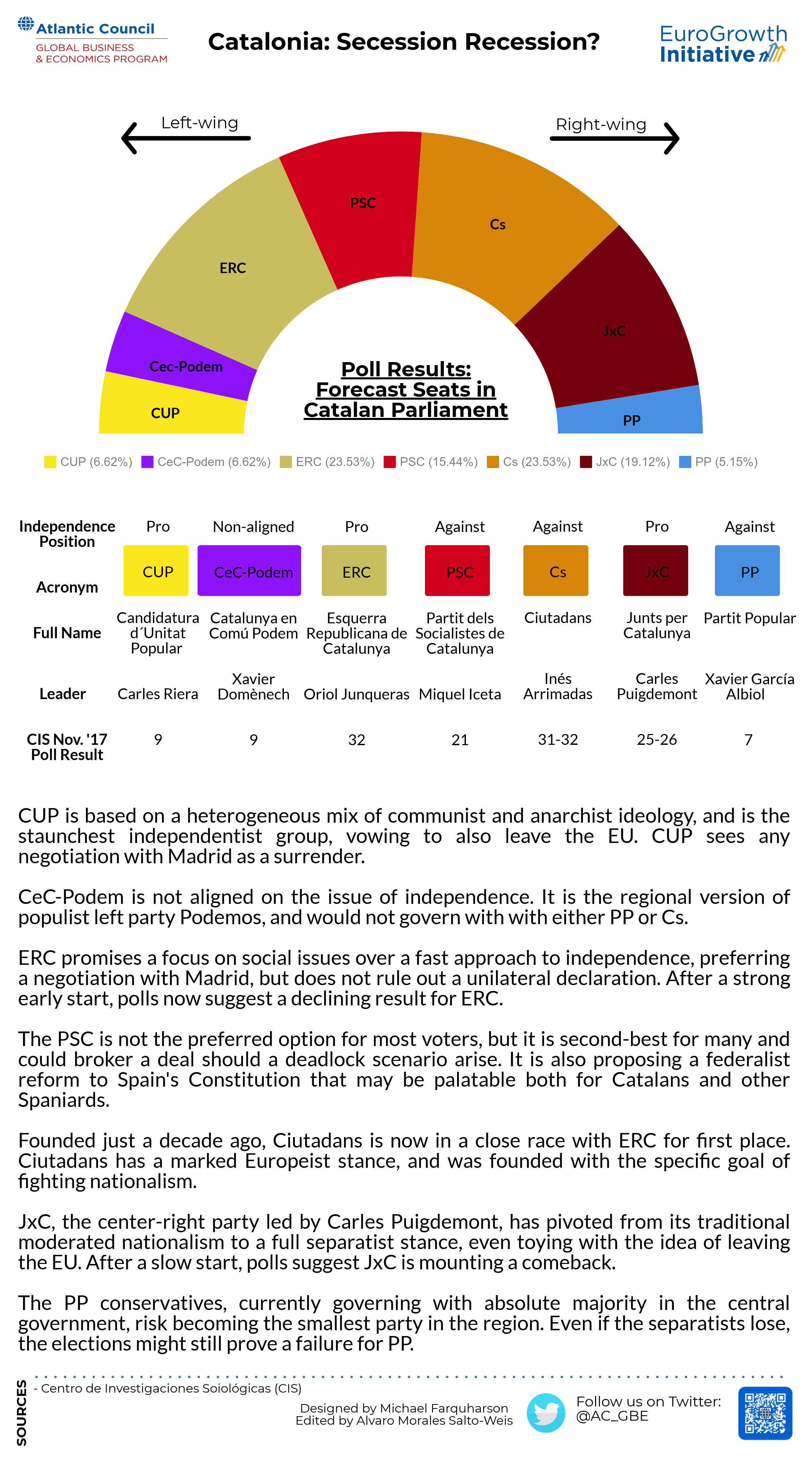The region of Catalonia will hold critical elections on December 21. The stakes are high: the region unilaterally declared its independence on October 1 and subsequently saw the rule of its regional government suspended by Madrid’s central government pursuant to Article 155 of the Spanish constitution.
The Catalan electorate is deeply polarized on the issue of regional independence, and the formation of a coalition after the vote will be additionally complicated by important differences of opinion along the more traditional left-right ideological spectrum.
Key Points:
1. A deeply polarized and fractured electorate is unlikely to deliver a conclusive result on the issue of independence;
2. Our current expectation is therefore continued political gridlock and new elections after failed attempts at coalition forming;
3. Catalonia’s economic prospects will continue to be profoundly affected and altered by the prolonged political uncertainty.

The regional parliament has 135 seats, so sixty-eight seats are required for a coalition to benefit from the support of an absolute majority. While parties supporting independence reached seventy-two seats in the 2015 elections, they are currently collectively polling around sixty-seven seats, and we anticipate a higher turnout of voters opposed to independence in the December polls compared to 2015. As a result, our current expectation is for an outcome in which neither the parties supporting independence nor the parties opposed to it will be able to form a government. This would eventually lead to new regional elections, perhaps after one or more unsuccessful attempts at forming a coalition.
Regardless of the coalition ultimately formed, the sharp divide within the population on the topic of independence will mire the region in political instability and economic uncertainty for years to come. The impact on regional growth and employment prospects is broadly negative as the uncertainty is already affecting investment decisions. To date, approximately 3,000 Catalan companies— including the largest banks, utilities, and insurers— have moved their corporate headquarters to other areas of Spain. Among other things, they fear the impact of being located outside of the European Union as it relates to licensing, the currency and payment system, regulatory standards, etc.